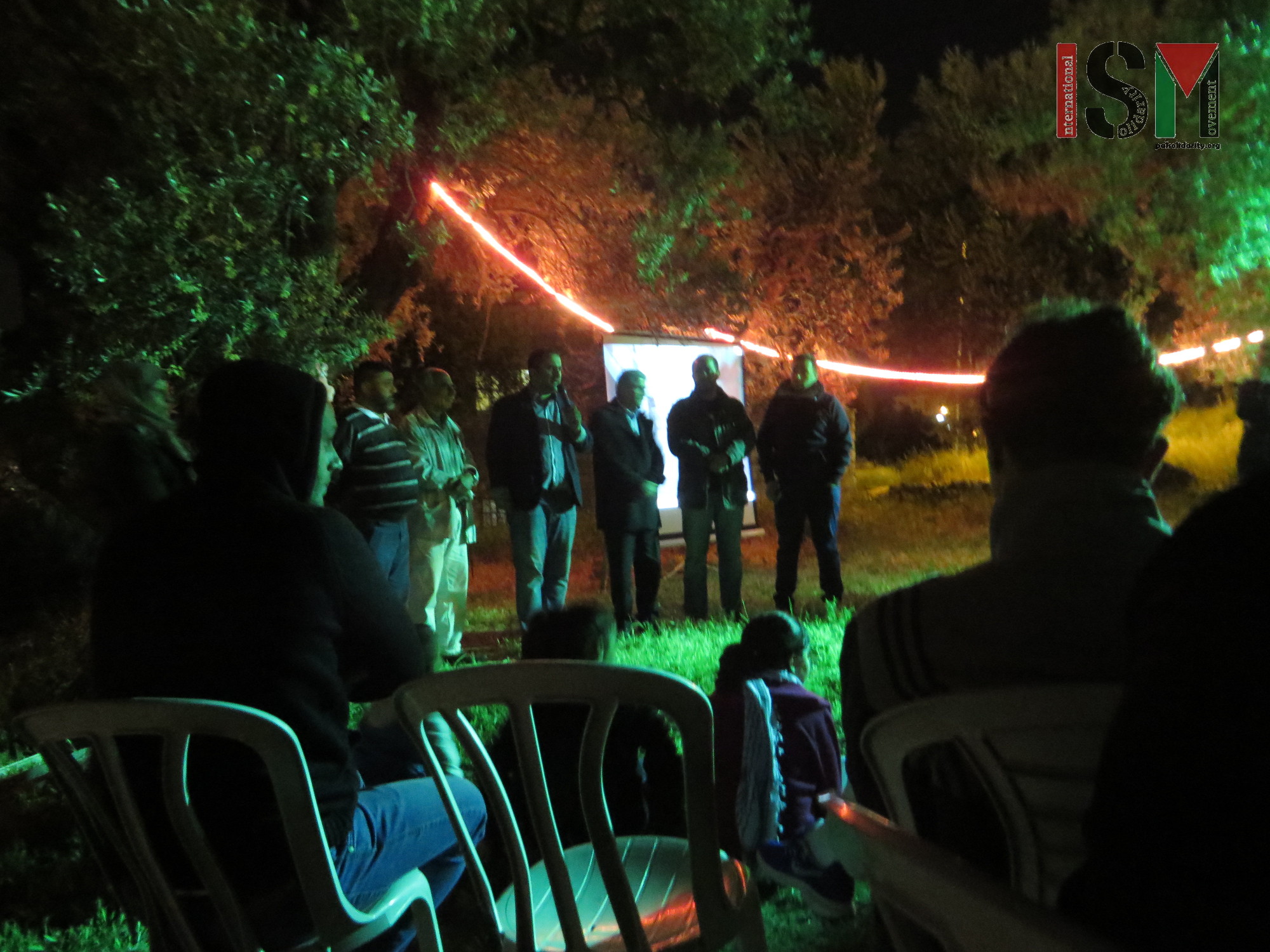Category: Hebron
-
Imad Abu Shamsiya: A lifetime of resistance
1st May 2016 | International Solidarity Movement, al-Khalil Team | Hebron, occupied Palestine On the morning of the 24th of March around 8:30 am two Palestinian youths, Ramzi Aziz al-Qasrawi, 21, and Abed al-Fattah Yusri al-Sharif, also 21, were shot to death by Israeli forces after an alleged stabbing attempt in the Palestinian neighbourhood of…
-
Closing of 7th annual Open Shuhada Street campaign
28th April 2016 | International Solidarity Movement, al-Khalil Team | Hebron, occupied Palestine On the 27th of April 2016 Youth Against Settlements hosted the closing event of the annual campaign “Open Shuhada Street”. This year was the 7th year of the campaign, and YAS is determined to continue the success. This year more then 155…
-
Illegal settler visits impose severe restrictions on Palestinian presence in al-Khalil
27th April 2016 | International Solidarity Movement, al-Khalil | Hebron, occupied Palestine During this week’s ‘Pessach’ celebrations from 22nd to 29th April, Israeli settlers and Israeli forces throughout occupied al-Khalil (Hebron) have been taking over Palestinians houses, rooftops, streets and entire areas while denying passage for Palestinians. Last Friday night, with the start of the ‘holiday’,…


